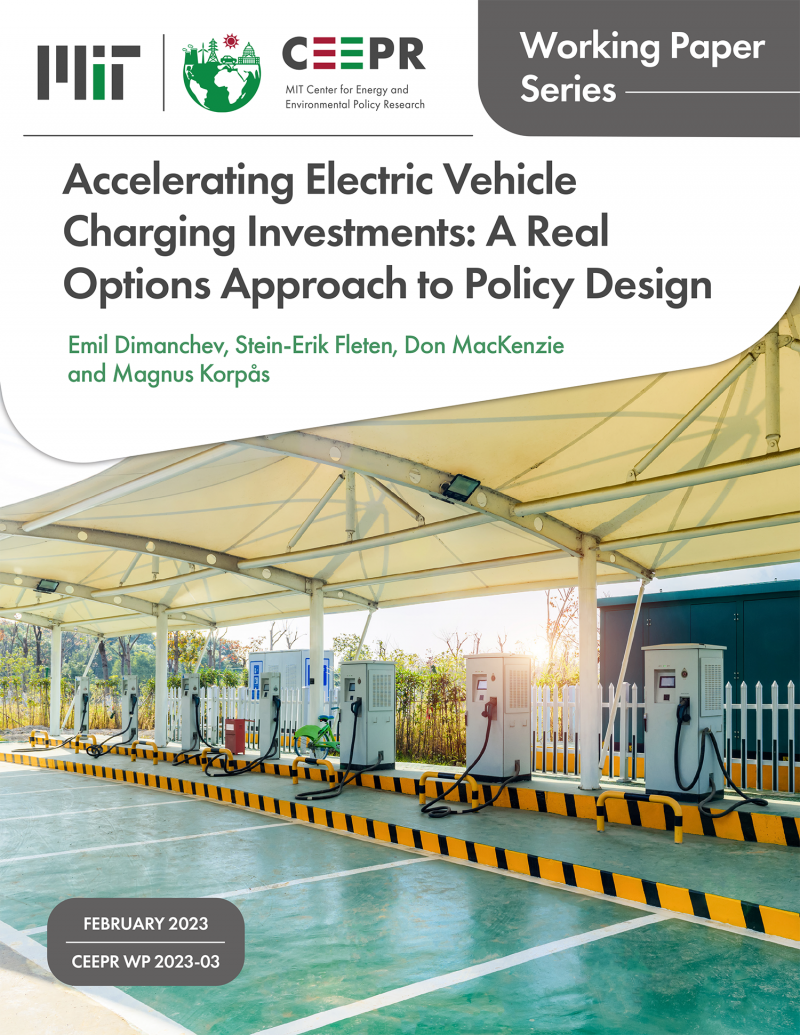Accelerating Electric Vehicle Charging Investments: A Real Options Approach to Policy Design
Emil Dimanchev, Stein-Erik Fleten, Don MacKenzie, and Magnus Korpås
February 2023
Replacing conventional cars and trucks with battery electric vehicles requires a rapid expansion of fast-charging infrastructure. However, private sector charging infrastructure investments are delayed by unfavorable project economics and uncertainty in future demand. Prior research has addressed the former using standard net present value (NPV) methods, but neglected the latter. To address this gap, this paper introduces a real options model of charging investments, which quantifies the option value of delaying investment under uncertainty. We apply our model to assess the implications of this optionality in a representative case. Our analysis simulates how investment timing is impacted by alternative policy options: grants, long-term contracts, demand charge re-design, and Zero Emission Vehicle standards. We estimate that if subsidy levels are informed by a traditional NPV analysis, firms would delay investing by more than 5 years. Perhaps surprisingly, even low levels of risk incentivize long delays. We find that policies targeting optionality are substantially more cost-effective than the more commonly used grants. Specifically, we calculate that long-term contracts-for-differences can trigger immediate investments at a cost 68% lower than up-front grants. A simpler but relatively cost-effective alternative is to introduce a phase-out schedule for grants to discourage investment delay.



